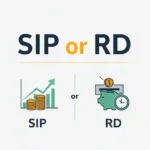Mutual funds provide a simple route to investment for people who are not familiar with the financial world. They enable you to combine your money with others and invest it in a portfolio of stocks, bonds, or other securities diversified. The diversification will distribute risk, and day-to-day investment choices will be taken by professional fund managers.
For novices, the choice of mutual funds is important. You need funds with good historical returns, which have a balanced risk profile, and suit your investment time frame. The funds mentioned below are some of the top mutual funds for novices in 2025, with good 3-year average annualized returns in various categories like ELSS, aggressive hybrid, balanced advantage, and multi-asset allocation.
Top Mutual Funds for Beginners in 2025
Following is a comparison table of some of the top mutual funds for beginners in India, their type of fund and 3‑year annualized returns.

| Fund Name | Type | 3‑Year Annualized Return |
|---|---|---|
| SBI Long-Term Equity Fund | ELSS | 23.51% |
| Motilal Oswal ELSS Tax Saver Fund | ELSS | 22.18% |
| HDFC ELSS Tax Saver Fund | ELSS | 21.54% |
| ICICI Prudential LT Wealth Enhancement Fund | ELSS | 19.77% |
| Sundaram LT Tax Adv Fund-Sr IV | ELSS | 19.44% |
| JM Aggressive Hybrid Fund | Aggressive Hybrid | 21.40% |
| HDFC Balanced Advantage Fund | Balanced Advantage | 20.26% |
| ICICI Prudential Multi-Asset Fund | Multi-Asset | 19.14% |
| Quant Multi-Asset Fund | Multi-Asset | 18.84% |
| UTI Multi-Asset Allocation Fund | Multi-Asset | 18.45% |
Data is indicative and based on historical performance; actual returns may vary. Always verify current fund metrics and consult with a financial advisor before investing.
Why Are These Funds Ideal for Beginners?
1. Diversification Across Strategies
The list comprises a combination of ELSS funds, aggressive hybrid funds, balanced advantage funds, and multi-asset funds. Not only do ELSS funds help you save on taxes but also give you exposure to high-growth equities. Hybrid and balanced funds offer a combination of equities and debt, lowering volatility but producing consistent returns. Multi-asset funds diversify across asset classes, giving you a balanced solution that limits risk.
2. Attractive Historical Returns
Every fund in our list has shown robust performance in the past three years. For example, the SBI Long-Term Equity Fund and Motilal Oswal ELSS Tax Saver Fund have given staggering returns of more than 22%. Historical consistent returns give a sense of a fund’s quality of management and its ability to create future returns.
3. Cost-Effective Investment
Many of these funds have competitive expense ratios, making them an affordable option for beginners. Lower expenses mean that more of your investment contributes directly to your returns, which is crucial when you’re just starting out with limited capital.
4. Tax Benefits
ELSS funds are a favorite among first-time investors as they provide tax-saving under Section 80C of the Income Tax Act. Investing in ELSS funds helps you lower your taxable income while creating a diversified equity portfolio.
Key Considerations for Beginners
Before investing in mutual funds, consider the following:
- Investment Horizon:
Determine your financial goals. ELSS and hybrid funds are generally suitable for long-term investors (5 years or more). - Risk Tolerance:
Evaluate your willingness to accept market volatility. While aggressive hybrid funds might offer higher returns, they can also come with increased risk. - Expense Ratios:
Compare the costs of different funds, as even small differences in expense ratios can significantly affect long-term returns. - Fund Manager’s Track Record:
Look at the historical performance and consistency of the fund managers. A proven track record can be a good indicator of future performance. - Market Conditions:
Understand current market trends and economic forecasts. A balanced portfolio that takes market volatility into account is essential for sustainable growth.
Final Thought
The top mutual funds for new investors in 2025 provide the perfect balance of diversification, good past returns, tax efficiency, and low cost. If you opt for an ELSS fund for tax benefits or a balanced/multi-asset fund for stability, these schemes are perfect for new investors to create a solid financial base. Just keep in mind that good investing is a long-term process that involves keeping an eye on things from time to time, disciplined investing, and ongoing learning.
Frequently Asked Questions (FAQ)
What are mutual funds?
Mutual funds pool money from numerous investors to invest in a diversified portfolio of stocks, bonds, or other securities, managed by professional fund managers.
Why are ELSS funds popular among beginners?
ELSS funds offer the dual benefit of potentially high returns and tax savings under Section 80C of the Income Tax Act, making them particularly attractive to new investors.
What is the advantage of investing through a Systematic Investment Plan (SIP)?
SIPs allow you to invest smaller amounts regularly, reducing the impact of market volatility by averaging the cost over time, which is ideal for beginners with limited capital.
How should I choose the right mutual fund?
Consider factors such as your investment horizon, risk tolerance, expense ratios, historical performance, and the fund manager’s track record.
Do I need a lot of money to start investing in mutual funds?
No, many mutual funds allow you to start with as little as ₹500, making them accessible even if you have a modest amount to invest.










